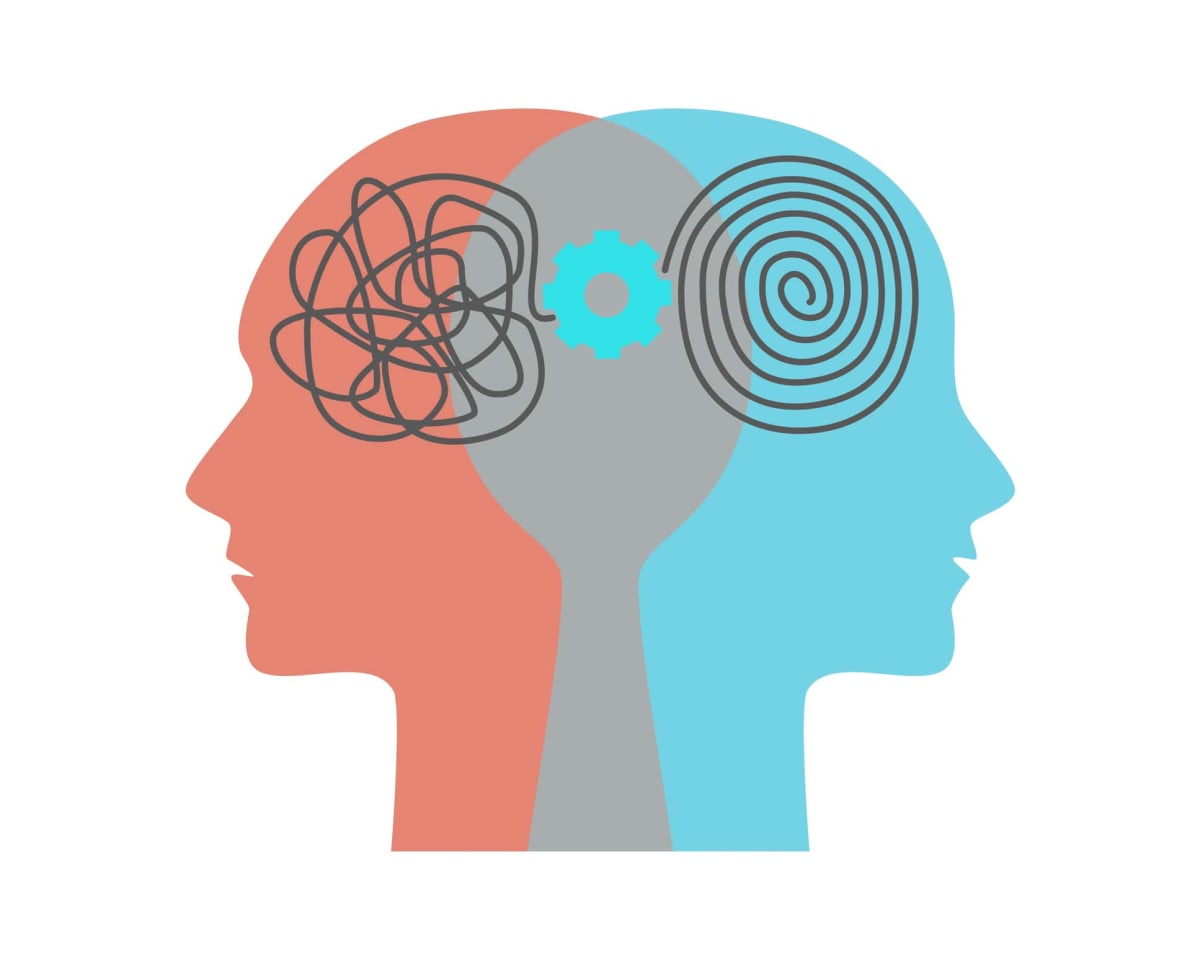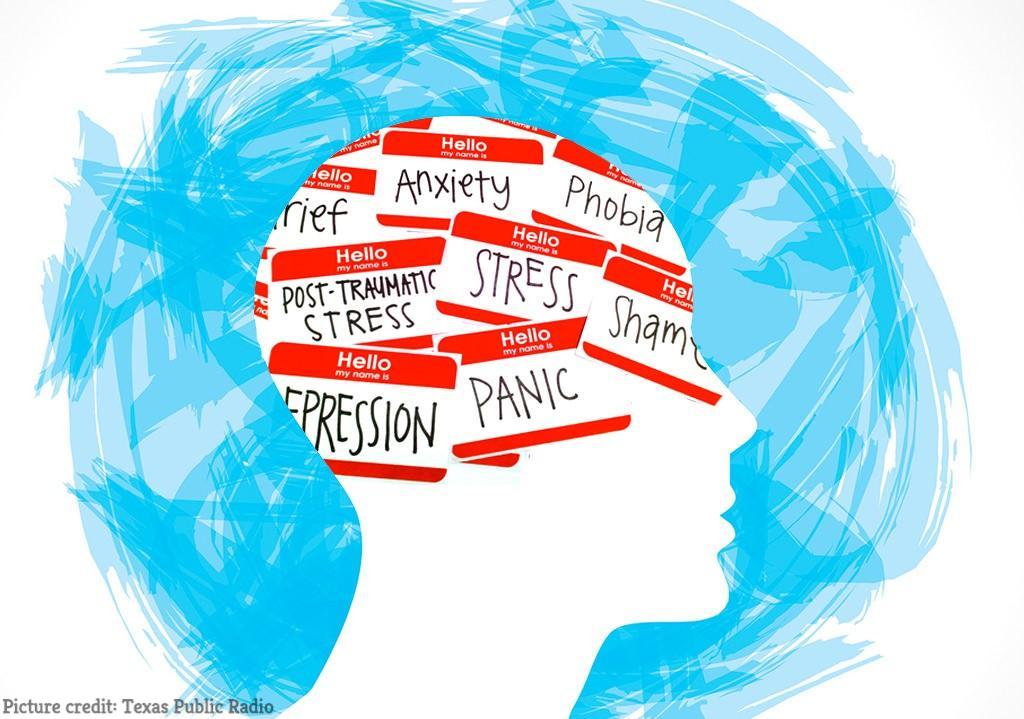Have you ever been somewhere, maybe even talking to someone, but your thoughts were a million miles away? It’s a pretty common feeling, isn't it? We might be physically present, sitting right there, yet our minds are busy replaying yesterday's chat, planning tomorrow's tasks, or just drifting off into some daydream. This feeling, this disconnection between body and mind, is exactly why understanding the mentally here meaning is so important for our daily lives. It's about bringing your whole self to the moment, a simple idea that can make a big difference, you know?
It's like, imagine trying to listen to a story while also trying to solve a puzzle in your head. You're hearing the words, perhaps, but are you truly getting the story? Probably not. Your brain is split, pulling in different directions. This happens a lot more often than we might realize, whether we're at work, spending time with loved ones, or just trying to relax. Our minds can be very busy places, indeed.
When we talk about being "mentally here," we're talking about something happening in your mind, just as "my text" points out. It's about your intellect, your thoughts, your brainy activity all lining up with where your body is. It’s the opposite of feeling "mentally hit by a truck" or like you're "mentally in the condition of children" when you need to be sharp. It's about being "mentally alert," feeling "extremely fit, both physically and mentally," and having your ideas thought out clearly, right there, right now. This is a problem that, for many, keeps them from truly living each moment.
Table of Contents
- What Does "Mentally Here" Really Mean?
- Why Being Mentally Present Matters
- Signs You Might Not Be "Mentally Here"
- Practical Ways to Cultivate Mental Presence
- "Mentally Here" and Overall Well-being
- Frequently Asked Questions About Being Mentally Here
What Does "Mentally Here" Really Mean?
When we say someone is "mentally here," we're talking about their mind being fully engaged with their current surroundings and what they are doing. It's about their thoughts, their awareness, and their attention all being focused on the present moment. "My text" tells us that "the meaning of mentally is in the mind," and that "anything that happens mentally is happening in your mind." So, being "mentally here" means your mind is truly at the spot where your body is, not off somewhere else.
It's about having your brainy activity tied to what's happening right now. For example, if you're reading a book, being "mentally here" means you're really absorbing the words, following the story, and thinking about the characters. You're not just scanning the lines while your mind thinks about dinner or a conversation from earlier. It's a state where your intellect is fully online with your current task, whatever it might be, which is a big deal for getting things done.
This state is also about being prepared, as in "Are the players mentally and physically prepared to play a tough game?" If players are mentally here, their minds are sharp, focused on the game plan, and ready for whatever comes their way. They are not distracted by worries about the score or past mistakes. This kind of mental readiness, you see, is a key part of performing well in any situation, whether it's sports or just everyday tasks.
More Than Just Being Awake
Being "mentally here" is much more than simply being awake. You can be wide awake, sitting upright, with your eyes open, and still not be mentally present. Think about it: you might be staring at a screen, but your thoughts are miles away, maybe making a list of things you had to do, as "my text" describes. Your body is there, but your mind has taken a little trip. This is a pretty common experience for many people, especially these days with so many things pulling at our attention.
It means your brain is actively processing the current experience, rather than just passively existing. It’s about conscious engagement. If you're mentally alert, as in "The baby is very mentally alert," you're taking things in, reacting, and truly processing what's going on around you. This kind of active mental state helps us learn, connect, and react in ways that just being awake doesn't quite cover.
This idea also connects to how we form ideas. "My text" says "An idea thought out in one's mind, as opposed to an idea spoken orally." When you're mentally here, the ideas you're forming in your head are often clearer and more directly related to the situation at hand. Your thoughts are organized and relevant, not scattered or vague. It's a state where your internal world aligns with your external one, which is rather helpful.
The Difference from "Physically Here"
The contrast between "mentally" and "physically" is quite clear, as "my text" points out: "Just as the adverb physically relates to the body." So, "physically here" means your body is in a certain spot. You are sitting on a chair, standing in a room, or walking down a street. Your physical self occupies space. This is, in a way, the simpler part of being present.
However, "mentally here" refers to the state of your mind, your intellect, and your thoughts being in that same spot. Your body can be in the room, but your mind can be elsewhere, perhaps replaying a memory or planning a future event. The two don't always go together. For example, someone could be "physically" at a gathering but "mentally" worried about something else entirely. This disconnect can make interactions feel hollow, and it's something many of us experience, you know?
This distinction is important because while we can easily see if someone is physically present, it's much harder to tell if they are mentally present. Someone might look like they are listening, but their mind could be completely checked out. This is why practices that encourage mental presence are so valuable; they help us bring our whole selves to whatever we are doing, connecting our body and mind in a meaningful way. It's about aligning those two parts of ourselves, which is pretty powerful.
Why Being Mentally Present Matters
Being mentally here has a big impact on many parts of our lives. When your mind is truly with you, in the moment, you get more out of every experience. It’s about quality of life, really. Think about it: if you're always half-thinking about something else, you're missing out on what's happening right now. This can make life feel rushed or unfulfilling, even when good things are happening.
It helps us to really connect with people, to do our best work, and to feel calm inside. Without mental presence, our days can feel like a blur, where one event blends into the next without much real engagement. It's a way to slow things down and appreciate the small details, which is something many people are looking for these days. This is why focusing on being "mentally here" can be a very good step for anyone.
Moreover, when your mind is truly present, you are better able to react to situations and make good choices. You are not caught off guard because your thoughts are elsewhere. This kind of mental readiness, as we saw with the example of players being "mentally and physically prepared," helps us to handle challenges better. It gives us a sense of being on top of things, which is a pretty good feeling to have.
Better Connections and Relationships
When you are mentally here, you can truly listen to others. You pick up on the small cues, the tone of voice, the feelings behind the words. This makes your conversations deeper and more meaningful. People feel heard and understood when you are fully present with them. It's a way of showing you care, which is very important for building strong bonds with friends, family, and even coworkers.
Imagine talking to someone who keeps looking at their phone or whose eyes seem to glaze over. You can tell their mind isn't with you, right? That feels pretty bad. On the other hand, someone who is truly listening, nodding, and asking thoughtful questions makes you feel valued. That's the difference mental presence makes in relationships. It helps create a feeling of trust and closeness, which is something we all want, I suppose.
This presence also means you're more likely to enjoy shared experiences. Whether it's a meal, a walk, or just sitting together, being mentally here allows you to soak in the moment with others. You're making real memories, not just going through the motions. This adds richness to your life and to the lives of those around you, which is a pretty lovely thing.
Boosting Your Focus and Productivity
When your mind is focused on the task at hand, you get things done more efficiently and with fewer mistakes. Distractions are less likely to pull you away, so you can concentrate better. "My text" says "Mentally, I began making a list of things I had to do." If you're trying to do one thing while mentally making a list for another, your current task will suffer. Being mentally here means giving your full attention to one thing at a time, which is actually very helpful for getting things done.
This focused state leads to higher quality work. When you're truly engaged, you notice details, come up with better ideas, and solve problems more creatively. It's like your brain is firing on all cylinders for that specific purpose. This can be a huge advantage in any work or study setting, leading to better results and less stress from rushing or redoing things. It's a pretty effective way to work, you see.
Over time, practicing mental presence can train your brain to be more focused generally. It builds a kind of mental muscle that helps you stay on track even when things get busy. This improved focus isn't just for work; it carries over into all parts of your life, making you more effective and less scattered overall. It's a skill that pays off in many ways, honestly.
A Calmer Inner World
Being mentally here often brings a sense of peace. When your mind isn't jumping from one worry to the next, or dwelling on the past, or fretting about the future, there's less mental noise. This quietness can be very soothing. It allows you to experience moments without the constant chatter that often fills our heads. It’s a bit like turning down the volume on a noisy radio, which is rather nice.
It helps you manage stress better. Instead of getting caught up in anxious thoughts, you can observe them without letting them take over. This ability to notice thoughts without getting swept away by them is a key part of mental presence. It gives you a little space, a little breathing room, between you and your worries. This can make a big difference in how you feel day to day, you know?
This inner calm also helps you appreciate the simple things in life. The taste of your food, the warmth of the sun, the sound of birds singing – these small moments often get missed when our minds are elsewhere. Being mentally here allows you to truly experience and enjoy them, adding a quiet joy to your everyday. It's about finding contentment in the now, which is pretty wonderful.
Signs You Might Not Be "Mentally Here"
It's easy to tell if your body is somewhere, but figuring out if your mind is truly there can be a bit trickier. However, there are some common signs that your mental presence might be lacking. Recognizing these can be the first step toward bringing your mind back to the moment. It's like, sometimes we don't even realize we're drifting until we notice these little clues, which is quite interesting.
One clear sign is when you find yourself constantly thinking about something other than what you're doing. This could be planning, worrying, or replaying past events. Another sign might be feeling disconnected from people or activities, even when you're physically present. These feelings can be subtle at first, but they tend to grow if not addressed. It's important to pay attention to these signals, truly.
Sometimes, these signs can feel a bit like what "my text" describes as being "mentally hit by a truck" – a sense of overwhelm or being out of sorts. Or perhaps feeling like you're "mentally in the condition of children" when you need to be sharp and focused. These are all clues that your mind isn't fully anchored in the present. Taking a moment to check in with yourself can be very helpful here.
The Wandering Mind
A classic sign is when your mind just won't stay put. You start a task, and almost immediately, your thoughts drift to something else. You might be reading a sentence, and suddenly you're thinking about what to cook for dinner. This constant mental hop-scotching means your focus is fragmented, and you're not fully engaging with what's in front of you. It's a very common experience for many of us.
This wandering can lead to feeling like you're going through the motions without really absorbing anything. You might finish reading a page but have no idea what you just read. Or you might have a conversation and realize later you missed half of what was said. This is a clear indicator that your mind was elsewhere, even if your body was right there. It's a bit frustrating, really, when that happens.
It's important to remember that a wandering mind isn't a flaw; it's just what minds tend to do. Our brains are designed to think, plan, and imagine. The trick isn't to stop it completely, but to gently guide it back to the present when you notice it drifting. This takes practice, but it's a skill that can be developed over time, honestly.
Feeling Overwhelmed or Detached
Another sign you might not be "mentally here" is a persistent feeling of being overwhelmed, like there's too much going on in your head. This can happen when your mind is trying to juggle too many thoughts at once, instead of focusing on one thing. It's a bit like having too many browser tabs open in your brain, making everything slow down and feel chaotic. This can be quite draining, you know?
Or, on the flip side, you might feel a sense of detachment. You're present physically, but you feel like you're watching your life from a distance, rather than living it. This can make experiences feel less real or less enjoyable. You might be at a fun event but feel a strange emptiness, a sense of not truly being there. This feeling of being disconnected can be a pretty strong signal.
This detachment can also show up as difficulty remembering recent events or conversations clearly. If your mind wasn't fully present when something happened,



Detail Author:
- Name : Hailie O'Conner
- Username : llewellyn.johnson
- Email : vladimir06@abbott.com
- Birthdate : 1988-03-01
- Address : 788 Kub Village Apt. 581 New Dorthastad, NH 73617
- Phone : 646.388.5293
- Company : Auer and Sons
- Job : Optometrist
- Bio : Qui dicta consequuntur voluptatem harum et. Soluta in deleniti commodi odio. Sunt dolores quibusdam aperiam qui. Velit esse laudantium soluta voluptatem tenetur rerum unde.
Socials
twitter:
- url : https://twitter.com/elouise.kuhn
- username : elouise.kuhn
- bio : Quasi debitis nulla illum dolorem adipisci reprehenderit. Sunt repellendus earum deserunt sint.
- followers : 1847
- following : 1093
linkedin:
- url : https://linkedin.com/in/elouisekuhn
- username : elouisekuhn
- bio : Consequatur ut autem unde cumque optio.
- followers : 2432
- following : 1840
facebook:
- url : https://facebook.com/elouise_dev
- username : elouise_dev
- bio : Non deserunt nihil nam qui sed nisi non veniam. Adipisci quia sit qui sunt.
- followers : 4250
- following : 2601

